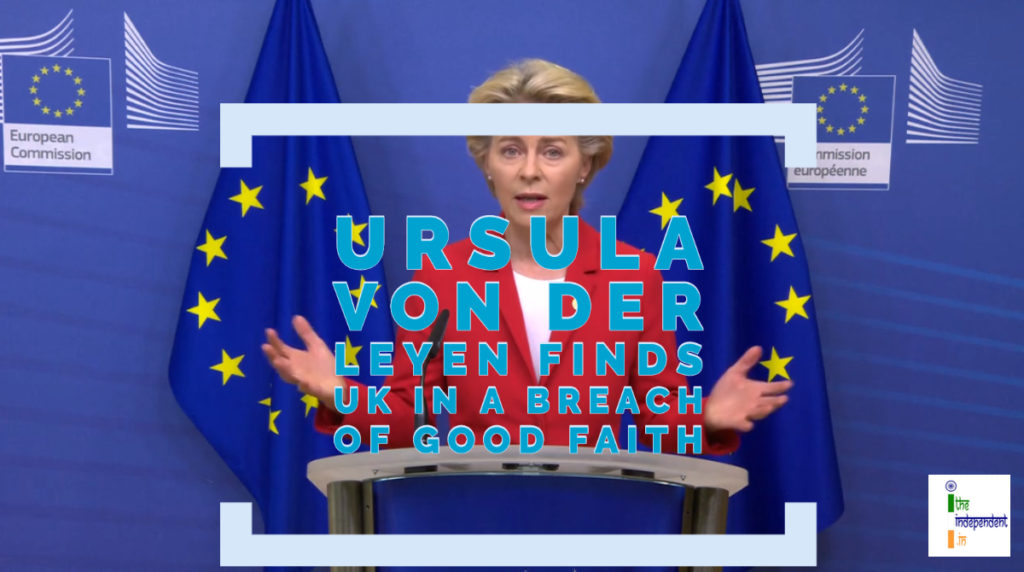
The European Union (E.U.) has initiated legal proceedings against United Kingdom (U.K.) after the latter didn’t withdraw legislation that would breach the Brexit deal and break international law.
Earlier on Wednesday, i.e., September 30, 2020, the deadline given by E.U. to U.K. for withdrawing the legislation expired. The legislation, ‘New Internal Market Bill’ has already been approved by the Member of Parliaments (MPs) in House of Commons with 340 MPs favouring it and 256 opposing it. The bill now needs to be approved by the House of Lords to become a law.
The Draft Internal Market Bill defines post-Brexit rule for operation, of U.K.’s internal market trade between England, Scotland, Wales and Northern Ireland. As per the Draft Bill, there will be no checks on goods moving from Northern Ireland to the rest of Great Britain. The Draft Bill also states that in case E.U. and U.K. are unable to strike a deal by the end of the year 2020, U.K. will have powers to modify or disapply the rules relating to movement of goods internally. It also empowers U.K. to override previously agreed obligations on state aid – Government support for businesses.
The letter of formal notice sent to U.K. could eventually lead to a court case at the European Court of Justice (ECJ). The E.U.-U.K. trade talks are continuing in Brussels this week. Prime Minister of U.K. – Boris Johnson has said both sides should move on if a deal is not reached by mid-October 2020.
The ECJ continues to have powers over the U.K. during the transition period, including over the interpretation and implementation of the withdrawal agreement. The Court can also force countries to comply with its rulings and can also fine financial penalties.
In the latest move, the President of European Commission – Ursula von der Leyen has given U.K. time till November 2020 to address the E.U.’s concerns in the draft legislation.
Addressing the media at Brussels, Ursula said,
“This draft bill, by its very nature, is a breach of the obligation of good faith laid down in the withdrawal agreement. Moreover, if adopted as is, it will be in full contradiction to the protocol of Ireland-Northern Ireland.”

Meanwhile, E.U. fears that this is contradictory to Northern Ireland Protocol and could lead to the reimposition of a hard land border and erode the stability. The protocol was agreed in order to eliminate the need for border checks between the only land border shared by the E.U. and U.K. on the island of Ireland. Both sides fear that checks could lead to a hard border and the return of sectarian violence that Ireland and Northern Ireland hoped were a distant memory.
For the records, Northern Ireland had seen political conflict from 1960 to 1998. It only ended when Belfast Agreement or Good Friday Agreement was signed on April 10, 1998. Issues relating to sovereignty, civil and cultural rights, decommissioning of weapons, demilitarisation, justice and policing were resolved. For the first time, the Irish Government accepted in a binding international agreement that Northern Ireland was part of the U.K.
On the other hand, U.K. says that while it respects the Belfast Agreement, the draft new bill will work as a safety net in case E.U. makes unacceptable demands post Brexit that could impact trade between Northern Ireland and the rest of the U.K.







